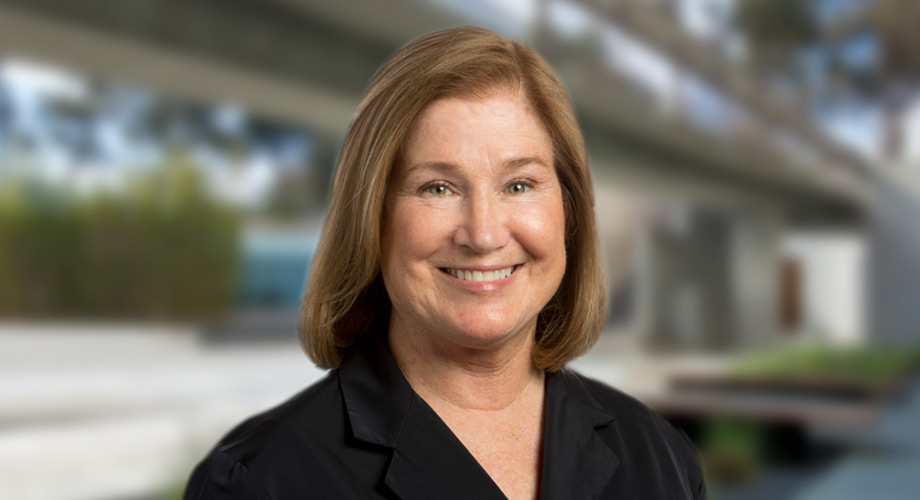
TSRI-ARC Director Barbara Mason, PhD, the Pearson Family Chair and Director of the Pearson Center for Alcoholism and Addiction Research at Scripps Research
$10 million grant funds Scripps Research Alcohol Research Center through its 50th year
The five-year grant supports research into the neurobiology of alcohol use disorder.
February 28, 2023
LA JOLLA, CA—The National Institute on Alcohol Abuse and Alcoholism (NIAAA) has awarded scientists at Scripps Research a $10 million grant to study the cellular and molecular changes in the brain that underlie alcohol use disorder (AUD). The grant will fund the Scripps Research Alcohol Research Center (TSRI-ARC) for five years, carrying the research into its 50th year of consecutive NIAAA funding—first beginning in 1977.
“A lot of exciting things have happened in the AUD field over the last 45 years, and the center has been at the forefront of many of them,” says TSRI-ARC Director Barbara Mason, PhD, the Pearson Family Chair and Director of the Pearson Center For Alcoholism and Addiction Research at Scripps Research. “But there is a lot of work still to be done, so it is incredibly gratifying to receive more funding that extends the lifetime of this grant to 50 years. We’re bringing together an unusually wide-ranging group of experts to bear on understanding alcohol use disorder and the challenge of treating it.”
Funding the future of AUD research
The grant will fund five separate research components led by associate professor Candice Contet, PhD (Molecular), UC San Diego professor Olivier George, PhD (Functional Connectomics), associate professor Rémi Martin-Fardon, PhD (Neurochemistry), Schimmel Family Chair and Vice Chair Marisa Roberto, PhD (Neurophysiology), and associate professor Eric Zorrilla, PhD (Neurocircuitry); and two resource cores led by senior scientific director Amanda Roberts, PhD (Animal Models), and Ernest W. Hahn Professor John Yates III, PhD (Neuroproteomics).
The funding also includes support for heightening interest in AUD research by providing high school and college internships for students in high-risk, underserved communities. TSRI-ARC is the only NIAAA-funded alcohol research center south of Los Angeles, and center members make an effort to share their expertise and resources with other institutions throughout the greater San Diego area. The projects funded by the grant include researchers not only at Scripps Research, but also collaborators at the UC San Diego (UCSD).
Built on a rich history
The Alcohol Research Center at Scripps Research was first funded under the leadership of Floyd Bloom, MD, chairman emeritus of neuropharmacology. Over the early decades of NIAAA funding, Bloom and others at TSRI-ARC were responsible for highlighting the importance of changes in brain neurocircuits as drivers of alcohol misuse. The center also discovered the role of stress neurocircuits in negative reinforcement in alcohol addiction and dependence. Multiple studies have subsequently revealed that the negative feelings associated with protracted withdrawal from alcohol are just as important in spurring addiction as the positive feelings associated with alcohol consumption.
“People used to think that alcohol use disorder was really an indication of flawed willpower,” says Mason. “Our work here at Scripps Research over the years has gone a long way in changing that perception by identifying the neurocircuits and molecules that are involved in driving this disorder.”
With the newest grant renewal, Mason and colleagues will be expanding their focus to include a set of cellular and molecular mechanisms in the brain that normally limit compulsive behavior. The research team wants to know specifically what happens to impair these executive function control mechanisms in people with AUD. They hypothesize that stress systems in the brain can impair these control mechanisms and make people more susceptible to developing AUD, or more susceptible to drinking relapse. The renewal funds will help the researchers test these foundational hypotheses and identify potential novel treatment strategies for AUD.
Of note, some of the findings from TSRI-ARC have led to clinical trials of drugs that may eventually be used to treat AUD. For instance, early work by Bloom on the importance of the brain signaling molecule known as hypocretin or orexin contributed to more recent basic research and clinical trials at Scripps Research on drugs targeting this system to treat AUD. And a 2014 trial, led by Mason, indicated the efficacy of the existing epilepsy drug gabapentin in treating AUD and contributed to the inclusion of gabapentin in new practice guidelines for AUD treatment.
A critical moment in time
According to the NIAAA, an estimated 29.5 million people in the United States have AUD, a chronic brain disorder characterized by compulsive drinking, loss of control over alcohol use and negative emotions when not drinking. Nearly 100,000 people die from alcohol-related causes annually, and alcohol misuse has been calculated to cost the United States economy $249 billion per year.
Mason emphasizes that now is a vital time to continue research into the underlying causes of AUD. Alcohol misuse and its untoward effects have risen in recent years, with the COVID-19 pandemic driving a new spike in rates of AUD. At the same time, organizations such as the American Psychiatric Association are embracing new and existing pharmacological treatments for AUD and issuing new guidelines on treating the disorder.
“The tide is turning, but there still haven’t been any FDA-approved treatments for AUD in nearly two decades,” says Mason. “Our primary goal with this grant renewal is to answer basic science questions about AUD and evaluate our discoveries for their potential translation into novel treatments for AUD.”
For more information, contact press@scripps.edu

